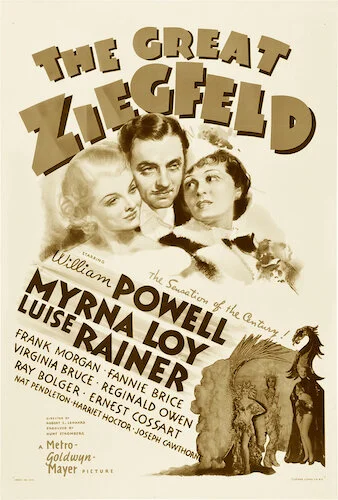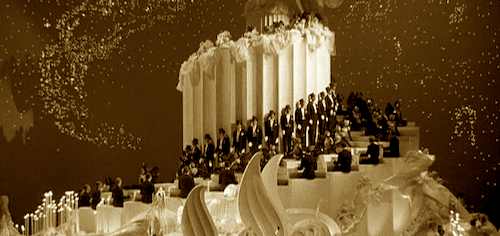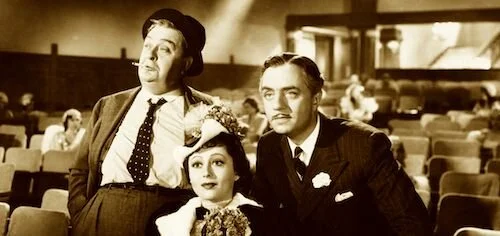The Great Ziegfeld
This review is a part of the Best Picture Project: a review of every single Academy Award winner for the Best Picture category. The Great Ziegfeld is the ninth Best Picture winner, and won at the 1936 Academy Awards ceremony.
Robert Z. Leonard’s musical epic The Great Ziegfeld is probably one of the most forgotten-about Best Picture winners to ever pull off the big win. I can kind of see why. In ways, it’s an underrated winner, considering what it was capable of pulling off. In other ways, it’s completely underserving of its win, having beaten out ‘30s classics like Dodsworth and Mr. Deeds Goes to Town. Its legacy rests right in the middle of the spectrum: a so-so film that doesn’t get enough love, but also maybe had too much love to begin with. How about this: its win remains questionable, but its standing as a Best Picture winner should be more discussed (in relation to some of the supreme stinkers to win this award, anyway).
Why is it so special? Remember The Broadway Melody, and its focus on creating a spectacle? For its time, The Great Ziegfeld achieved some breathtaking show-stopping sequences, with the same goal in mind: have the audience feel as though they are on Broadway, or at a circus. Some golden age films (musicals, in particular) couldn’t shake off the early necessity to use cinema as a means of experiencing the joys of other worlds in this particular way. Considering everything, the choreography, production quality, and the numbers themselves in The Great Ziegfeld are particularly strong. This helps sell the story as well, as we follow the show business impresario Flo Ziegfeld, Jr. (played by William Powell) and his dreams to bring entertainment to the masses. We understand his passion through these elaborate numbers.
The Great Ziegfeld is full of incredible numbers, and each of them make the film worth a shot.
So, what is the bad news? Well, The Great Ziegfeld was the longest Best Picture winner at that point (it would quickly be dethroned by Gone With the Wind). That’s not a problem. What is a problem, is that it certainly feels like a three hour long feature. Back when it was a roadshow screening, I’m sure the intermission helped a hell of a lot (especially since you feel like you are at a circus of some sort). We have the pause button in 2019, but The Great Ziegfeld slows down enough that you kind of just want to get it over with. For a film about entertainment, that is not a good sign.
We follow Flo Ziegfeld from his early days until his zenith. A s a biographical picture, the film certainly tries to highlight as many of the tiny nuances as it can. That isn’t so bad, until you remember that the film loves blasting out these performances, and for lengthy periods of time. Unlike many musicals, a number of these sequences don’t further the plot in any way, outside of reminding you why Ziegfeld wanted to do this in the first place. We could figure that out rather quickly. The film needed to either remain a biopic drama with some musical moments, or the full on entertainment piece that cures an itch audience members may have. Fulfilling both is bloated, and occasionally a full on bore.
Ziegfeld and company scouting.
A couple of faces help pull you along through the duller moments, including Powell himself (a strong actor is much needed in a film of this nature), and Luise Rainer’s Oscar-winning turn as iconic Broadway performer Anna Held. These performances stitch together the downtimes with the downtimes, and the performances with the performances. That way, The Great Ziegfeld feels like an ebb and flow: the passing of these moments, those moments, and all in between. As a Best Picture winner, there have been much better. As a forgotten Best Picture winner, The Great Ziegfeld may be worth an attempt for all of its finer moments.
Andreas Babiolakis has a Masters degree in Film and Photography Preservation and Collections management from Ryerson University, as well as a Bachelors degree in Cinema Studies from York University. His favourite times of year are the Criterion Collection flash sales and the annual Toronto International Film Festival.






